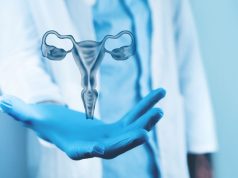Adjuvant RT versus early salvage RT may lower the risk for all-cause mortality in men with adverse pathology at radical prostatectomy
WEDNESDAY, June 16, 2021 (HealthDay News) — For men with positive pelvic lymph nodes (pN1) or pGleason score 8 to 10 prostate cancer and disease extending beyond the prostate (pT3/4) at radical prostatectomy (RP), adjuvant radiation therapy (RT) versus early salvage RT is associated with a lower risk for all-cause mortality, according to a study published online June 4 in the Journal of Clinical Oncology.
Derya Tilki, M.D., from the University Hospital Hamburg-Eppendorf in Germany, and colleagues examined the impact of adjuvant RT versus early salvage RT on all-cause mortality in men with adverse pathology at RP.
Overall, 2,104 of 26,118 men in the study cohort died after a median follow-up of 8.16 years, and 25.62 percent of these deaths were from prostate cancer. The researchers found that adjuvant RT compared with early salvage RT was associated with a significantly lower risk for all-cause mortality among those with adverse pathology at RP when men with pN1 prostate cancer were excluded (adjusted hazard ratio, 0.33) or included (adjusted hazard ratio, 0.66), after excluding those with a persistent prostate-specific antigen (PSA).
“For those men at high risk of dying from prostate cancer despite surgery, adjuvant radiation therapy rather than waiting until the PSA is measurable appears to be able to reduce all-cause mortality,” a coauthor said in a statement. “If we want to make a global impact in driving down the number of people who die from prostate cancer, it’s important to examine what can be done to help these men who are most at risk for dying from this disease.”
Several authors disclosed financial ties to the biopharmaceutical industry; one author has developed a molecular signature to predict radiation resistance in breast cancer, which is being patented and licensed.
Copyright © 2021 HealthDay. All rights reserved.








